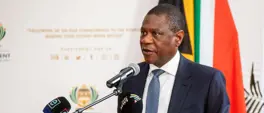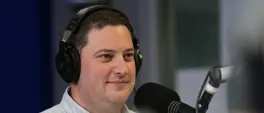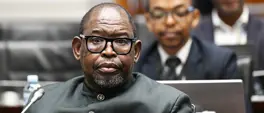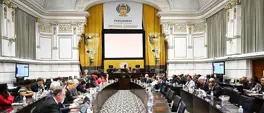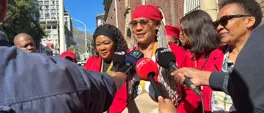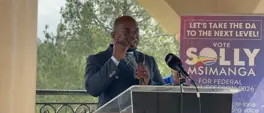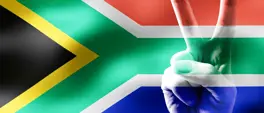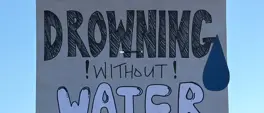JUDITH FEBRUARY | Saving ourselves from 'vagueness and inattention'
Judith February
21 November 2025 | 16:39Judith February laments the modern trend of reducing complex arguments to emotive slogans, saying that the lack of such depth and continuity of attention is a singular threat to democracy.

Picture: Camilo Jimenez on Unsplash
"To live in the world of creation—to get into it and stay in it—to frequent it and haunt it—to think intently and fruitfully—to woo combinations and inspirations into being by a depth and continuity of attention and meditation—this is the only thing—and I neglect it, far and away too much; from indolence, from vagueness, from inattention, and from a strange nervous fear of letting myself go. If I can vanquish that nervousness, the world is mine." - Henry James
While watching Zohran Mamdani groove to JZ and Alicia Keys’s Empire State of Mind in a crowded New York City club, Barack Obama probably thought, "I was young and hip once".
It was almost 17 years to the day that Obama had swept to victory with his "Yes, we can!" campaign, which combined door-to-door, digital and online campaigning in an unprecedented way. A youthful black President. A first. Bill Clinton was cool once too, playing the saxophone, dark glasses and all on the Arsenio Hall Show. Obama and Clinton, two very different men, but both with an instinctive ability to connect with people.
Mamdani, at 34, certainly knows how to connect with people and he understands the zeitgeist; the campaign was on the streets, in clubs and bars, hip-hop, rap and all. All-too-catchy and cool. But, Mamdani also understood that affordability and the loneliness and marginalisation which modern culture has bestowed, particularly in a post-COVID world, remain serious pressure points. And he tapped into those with charm and a campaign which was deceptively low-key and casual but in fact, very clever. Mamdani doesn’t just quote Toni Morrison by accident.
Yet, in a jaded world, he sold something which Obama and Clinton sold too - "the hopey, changey" stuff, as Obama’s staffers refer to it. Before that, there was also Bill Clinton’s "I still believe in a place called 'Hope'" (Arkansas). And Mamdani sold the rarest of commodities these days. His campaign had what always eludes Trump (and his supporters) - joy.
While Donald Trump stews in the White House, fomenting hate and dispensing cruelty at a whim to serve his own narcissism, one can easily see why people would have wanted something different in last week’s election. It goes without saying that Mamdani, mayor-elect, not president-elect, has a mammoth task on his shoulders because cities are actually where the rubber hits the road. It is where all the failures of democracy converge. (In South Africa, the ANC’s corruption and neglect have seen cities sink into tragic disrepair.)
But the modern methods of campaigning should also be met with a caveat.
After all, Trump also continues to employ a kind of feral genius as he aggressively uses online platforms as a meansof garnering support and then retaining the support of that base.
Henry James’s words, despite his living in another time, resonate when he speaks of what living in a "world of creation" requires of us and that "think(ing) intently and fruitfully" requires "depth and continuity of attention and meditation….", saving ourselves from "vagueness and inattention".
This is an individual challenge but also a collective one, and one especially for the modern politician. How does one tap into the zeitgeist without compromising the depth of thinking fruitfully?
Because the danger inherent in the post-truth world is disengaging with the detail of the logical argument or the granularity of the policy choices required to lower levels of inequality or provide healthcare for all, for instance, the world is a meme and our opinions have become almost meme-like. How else to understand the role of the ubiquitous "influencer"? This is not someone who knows terribly much, but rather someone who is able to "create or curate content" about themselves, a product or even a policy.
The lack of such depth and continuity of attention is a singular threat to democracy, as complex arguments about immigration, inequality, climate change are all reduced to slogans that capture the imagination and more often than not, speak to people’s worst fears and not their hopes. Our inability to hold two thoughts at once means that words often lack all weight and meaning. What is said today, in the glut of news, tweets (on X), or other forms of social media, is forgotten tomorrow. The world has moved on to the next thing.
In South Africa, we have also seen this manifest often in our debates on land redistribution and also the National Health Insurance, all worthy policy choices in and of themselves but all too easily hijacked by the emotional slogan. Our inability to parse the details meaningfully has led to chaotic land debates and redistribution (often subject to corrupt practices) and kite-flying as regards the implementation of the NHI, even as our public health system struggles with resource and other constraints.
And so, when universities in the UK start, as has recently been reported, teaching students "reading resilience" to get through long novels, we know that we are in deep trouble. Translating that to our own country with its abjectly poor education outcomes, one senses that democracy itself is in trouble. Our education system is failing successive generations, with most Grade 4s and 6s unable to read for meaning.
In a post-1994 country based on a flawed notion of empowerment, education has often taken the back seat in a national discourse that prizes crass wealth accumulation above the emancipatory power of a decent education. This will continue to cost us dearly and there are no quick fixes now.
Then, too, we have the likes of Fikile Mbalula, who regularly commits to speeches and comments that are a veritable word salad. The Minister of Sports, Arts and Culture, Gayton McKenzie speaks with a forked and a loose tongue. Many have lamented his holding office more times than should be necessary. Lacking all thoughtfulness and completely unsuited to a Cabinet minister’s position, let alone this portfolio, we have elevated a man who uses words carelessly, gives them no weight and whose views are hate-filled and xenophobic. There are many other examples in our current South African political moment.
How do we then go below the surface level and think carefully about our society, holding leaders to account and ensuring the elusive "better life for all", when the majority of our population has not been educated sufficiently to forge a way out of poverty and also to weigh the words of exploitative politicians and seek depth and context in everything?
Every generation’s inattention is a threat to democracy.
Get the whole picture 💡
Take a look at the topic timeline for all related articles.
